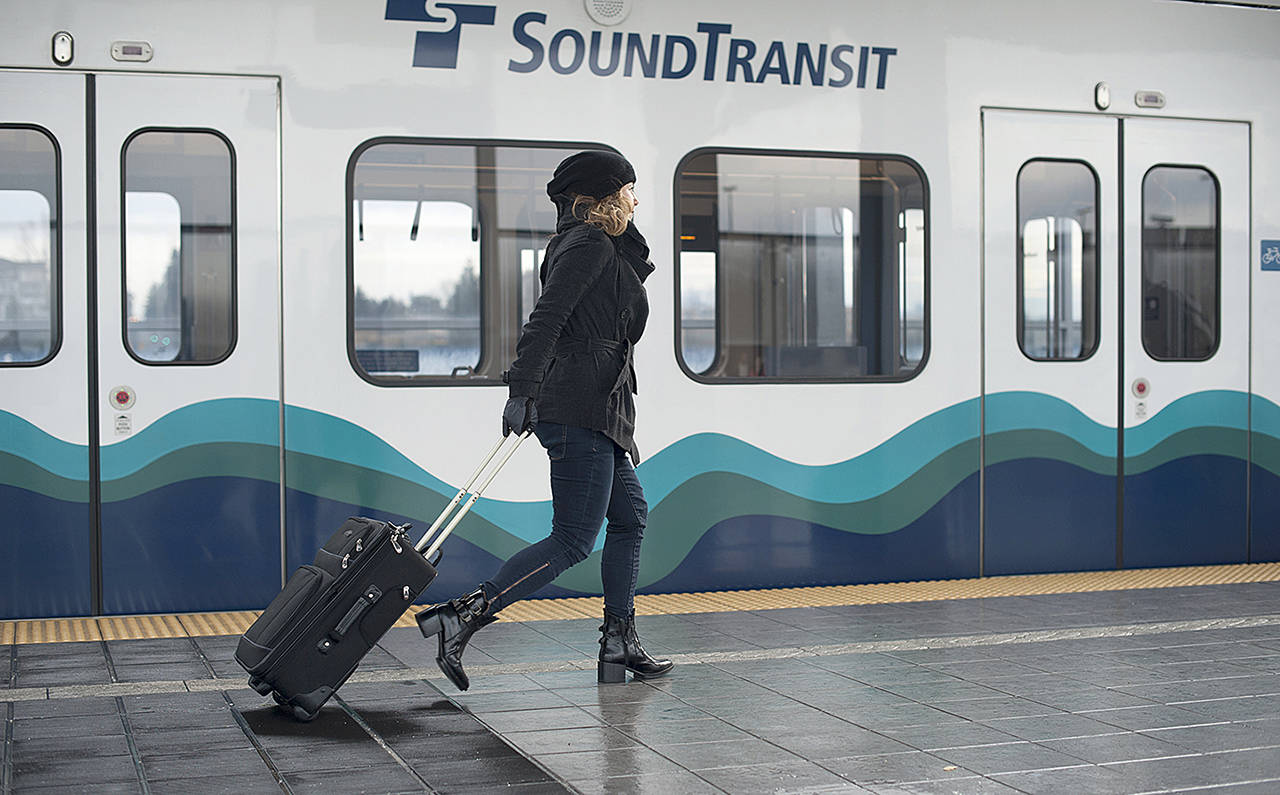OLYMPIA — State lawmakers launched a flurry of bills Friday to push Sound Transit to change its car tab calculation methods and to keep taxpayers informed on the progress of light rail expansion approved in November.
One bill allows the regional transit authority to use an outdated depreciation schedule to pay off existing bonds but requires it to switch to a newer valuation method to repay any bonds sold in the future.
That means Sound Transit could continue using the method blamed for large spikes in car tab fees. Outcry over the fees incited lawmakers to pressure the agency to change its ways.
Other bills aim to provide low-income individuals with rebates on their Sound Transit taxes and regular progress reports on the $54 billion voter-approved expansion plan known as ST3. In all, Democratic lawmakers introduced five bills Friday.
Meanwhile, the House Transportation Committee plans to tackle the concerns in a work session as early as next week. The Senate Transportation Committee held such a discussion Monday.
“We want people to know we heard them and we have started looking at what we can do in the short term to push Sound Transit to be more open and to be more involved politically,” said Rep. Judy Clibborn, D-Mercer Island, the committee’s chairwoman.
Sound Transit is a target of some lawmakers who are responding to constituents’ surprise at what they are paying this year as a result of the passage of ST3.
To pay for the plan, voters agreed to increase the motor vehicle excise tax from 0.3 percent to 1.1 percent; to hike the sales tax by a half-percent; and to levy a new property tax assessment.
The car tab fee hike took effect March 1. Those whose bills arrived in February learned they’ll pay two to three times as much as they did a year earlier, and some immediately contacted lawmakers to complain.
What frustrates legislators is that Sound Transit calculates its excise tax using a depreciation schedule drawn up in the 1990s, in which the car’s value dips 5 percent or 6 percent a year. A 2006 update shows a car loses 19 percent of its value after one year and 55 percent after five years.
Under a 2015 law, Sound Transit gets to keep using the older method until 2028 when bonds from its earlier phases of expansion are retired. Those were sold with an assumption of car tab collections tied to the older schedule.
A bill introduced Friday by Rep. Mike Pellicciotti, D-Federal Way, doesn’t stop Sound Transit from using the older method to pay off bonds issued before Jan. 1, 2017. But, going forward, if motor vehicle excise taxes are to be used to help repay bond debt incurred after Jan. 1, 2017, the taxes must be assessed using the newer schedule.
Another bill, this one sponsored by Rep. Shelley Kloba, D-Kirkland, would require Sound Transit to provide a “taxpayer accountability statement” with annual property tax notices sent out by counties. These would contain “easy-to-access and easy-to-understand” updates on projects including which are on time and on budget, and which are not.
“Coming from local government, I know when you put forward a ballot measure you ought to be able to give taxpayers an accounting on a regular basis of what you’re doing with their money,” said Kloba, a former Kirkland City Councilmember. She represents the 1st Legislative District, including parts of south Snohomish County.
Legislation from Rep. John Lovick, D-Mill Creek, would require the same information be included with vehicle tab renewal materials sent out by the state Department of Licensing.
“When I pay for something, I expect to know what I’m getting in return,” Lovick said in a statement. “Let’s clear up the confusion about what these car tabs are paying for by providing information directly to our constituents every time they get their renewal and registration.”
The fourth bill encourages Sound Transit to offer low-income individuals a rebate of up to 40 percent of their car tab and property tax payments owed to the transit authority. It would apply to those with income at or below 80 percent of the median income.
The last bill directs Sound Transit to improve coordination with other transit agencies in King, Snohomish and Pierce counties.
Sound Transit officials will be reviewing all the bills, spokesman Geoff Patrick said.
In particular, they will be examining how proposed changes in the motor vehicle excise tax could affect the amount of revenue the agency expects to collect in order to carry out the ST3 plan approved by voters, he said.
Jerry Cornfield: 360-352-8623; jcornfield@heraldnet.com Twitter: @dospueblos
Talk to us
> Give us your news tips.
> Send us a letter to the editor.
> More Herald contact information.

























